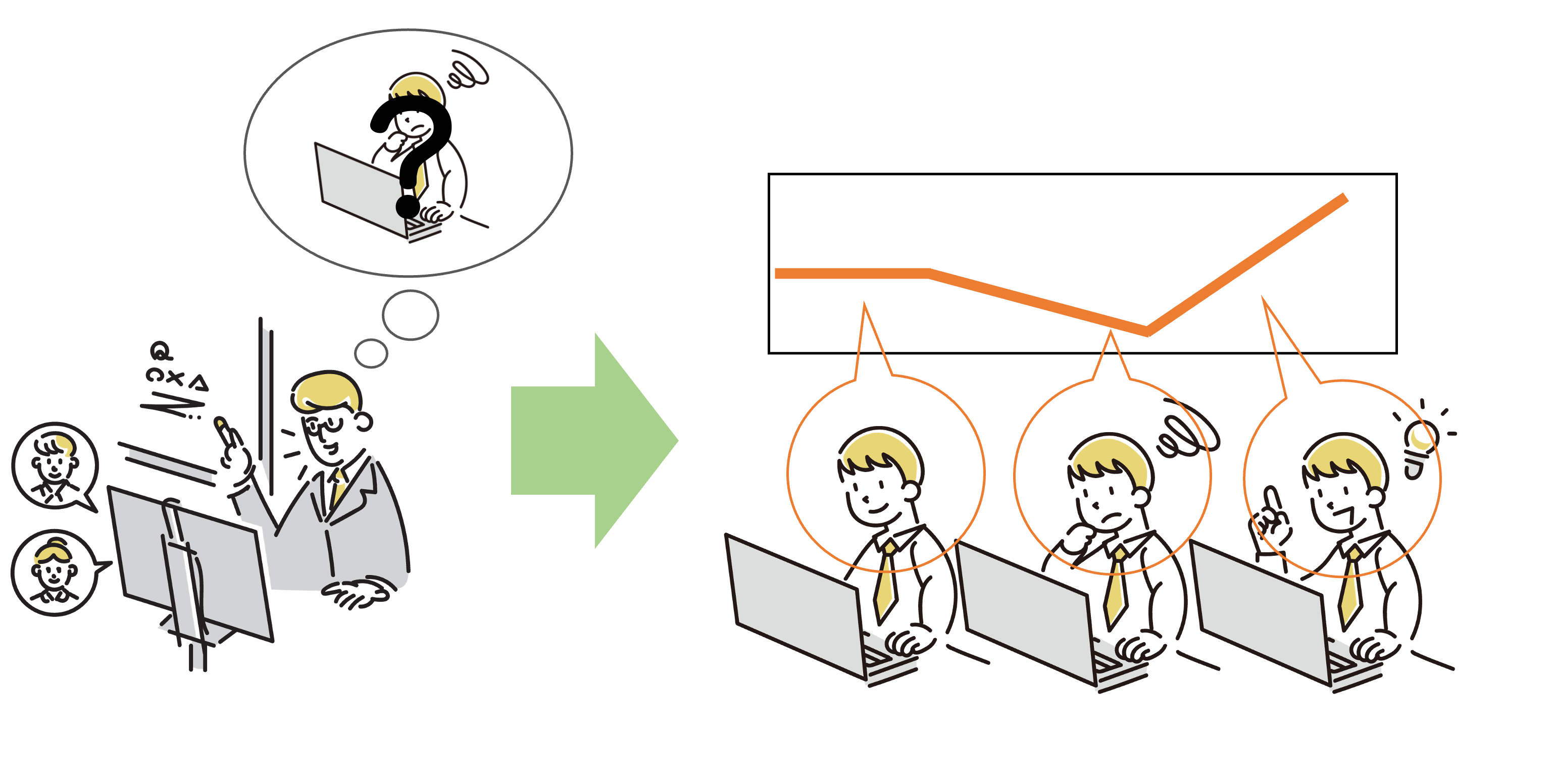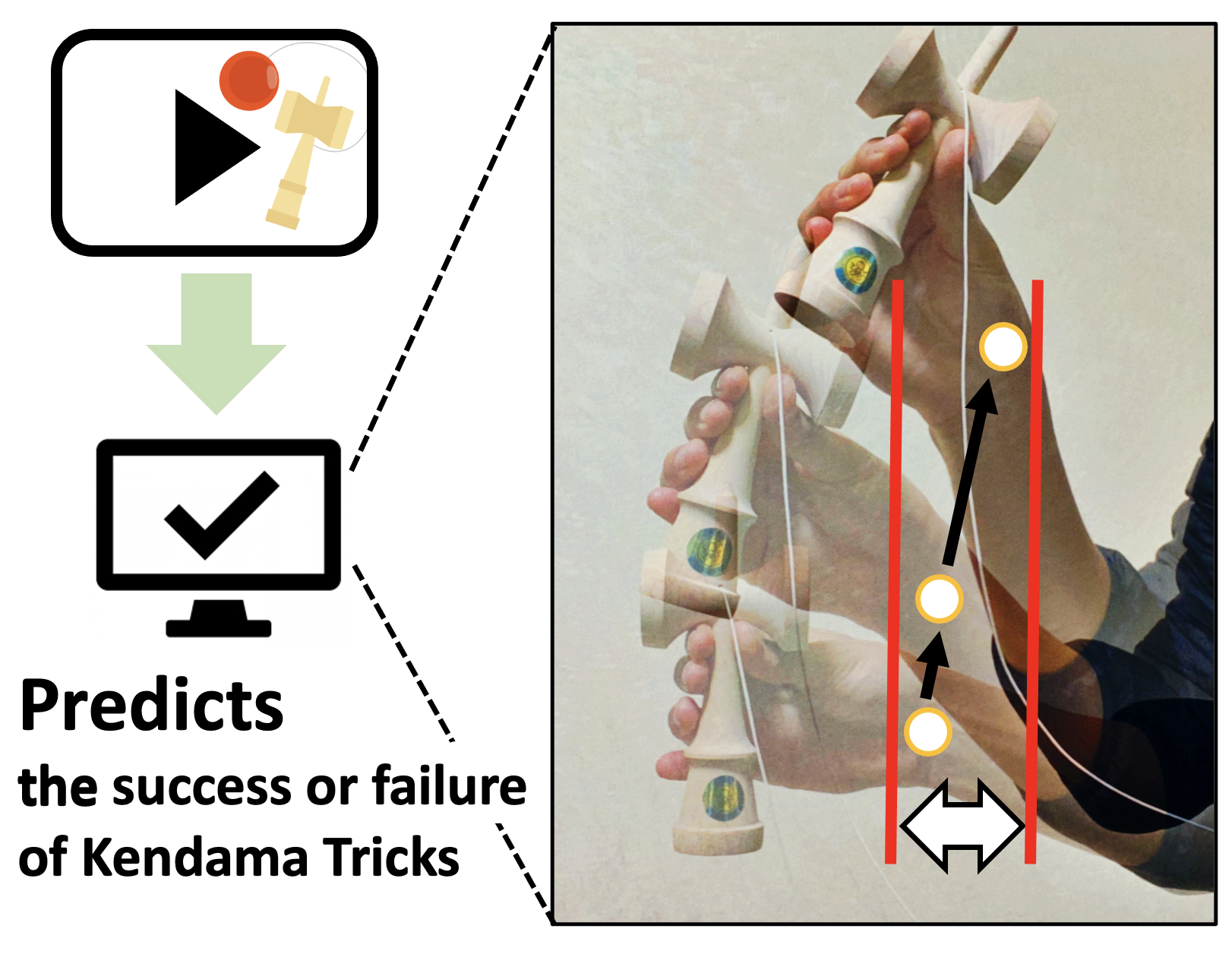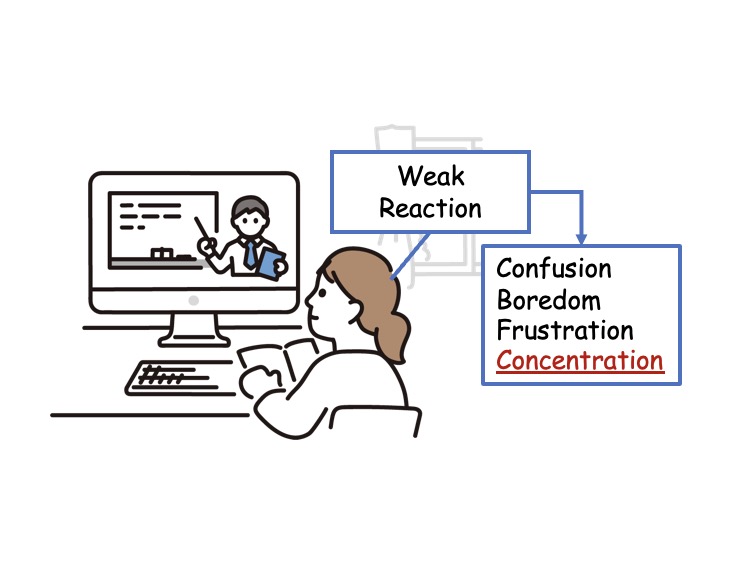Project Name
AI for Education
Member
Imanishi, Sakabe, Komori, Kaneko
Outline
Artificial Intelligence (AI) has the potential to address some of the biggest challenges in education today, innovate teaching and learning practices. AI has already been applied to education primarily in some tools that help develop skills and testing systems. As AI educational solutions continue to mature, the hope is that AI can help fill needs gaps in learning and teaching and allow schools and teachers to do more than ever before. That is why, some projects in our lab focuses on creating innovative AI approaches to solving problems schools, students and teachers are facing everyday.
One research in this category is estimating student engagement when viewing lecture videos. Online classes are an alternative to face-to-face instruction and can solve the problems of uneven distribution of educational resources and time constraints. However, in online classes, it is more difficult for teachers to know students' reactions to class content than in face-to-face classes. Therefore, we can infer engagement from students' head movements and facial expressions, and evaluate the quality of the class.

Another research in this category is developing a Kendama Self-Training Support System. Kendama techniques require dynamic and delicate movements, making them difficult for beginners. Therefore, this research analyzes recorded motion data and motion sensor data of kendama beginners and provides feedback to users to help them improve their skills.

Another research consists of the estimation of students' weak reactions when viewing lecture videos. In on-demand lectures, there is a need to confirm students’ reactions when they watch lecture videos. The problem here is that there are many students who do not understand the content of lectures while watching these videos, this research plans to estimate their reactions from their facial expressions, which are unconscious reactions. However, the facial expressions of participants are too weak to be identified. Therefore, the research aims to estimate responses from the weak facial expressions of participants by examining facial expression data sets.

Copyright (c) 2023 Ozono Lab. All rights reserved.